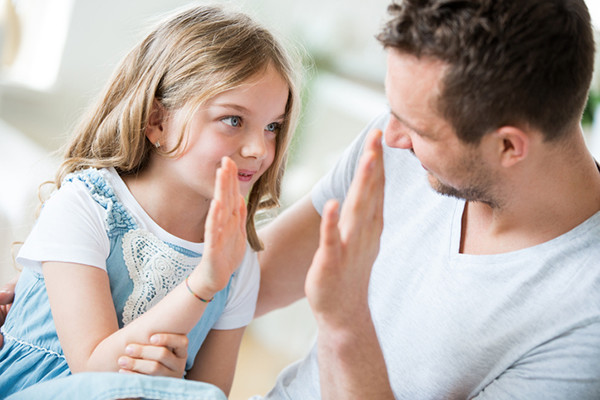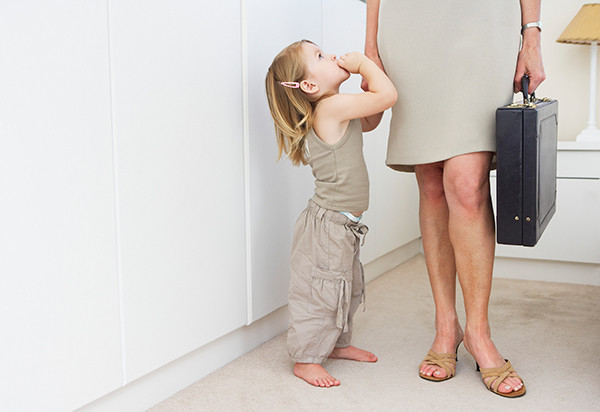Journalist Svetlana Moush, a few years livingin France, she shares her impressions of French family pedagogy: “I have two vivid memories from the beginning of my life in France, and they are connected with French children. ... Slowly delirious along the banks of the Baise river. Mood, as the French say, comme si, comme ça (neither this nor that). Slightly below the path behind the bushes are children, cry and din. Suddenly a black curly head rises above the bushes: “Bonjour, madam!” - with a dazzling smile of a man, pleased with his small, but so vigorous life. Other children’s heads were also promoted, and the children happily stuck into one: “Bonjour! Bonjour, madam! ”And yet they did not see me, but only heard, but were not lazy, rose a little to greet. Of course, you can say as much as you like that they are not from the heart, but because it is so accepted, and there is no warmth in these wishes. This is a very paradoxical argument of many of my compatriots who profess the principle: “Die, but do not give a smile without love!” But ... It became just brighter and warmer on the soul. Like a ray of sun peeking through the clouds. It would seem, why? Just because they greeted you. A photo: Getty Images The second impression is of a different kind. Our friends have a four year old kid. Several times I see him running in the fall with a huge green snot through his lip. Finally, I decide to tell his mother: “You know, I have a good idea of what is sinusitis, such snot is his sign. You should go to the doctor. " “Oh no, that you! It will be over! ”- mom flips away lightly. Well, yes, by the summer, it seems, has passed ... Two situations perfectly demonstrate the foundations of French education. This is a combination of two contradictory, from the point of view of Russian mothers, principles, namely, the severity of upbringing a social and rather careless attitude to the very fact of birth and having a child. Attitude to a child here is not like a precious vessel over which mother, father, grandmother and grandfather are shaking, but as the same family member for whom life does not change, although it is enriched with new colors and emotions.
A photo: Getty Images The second impression is of a different kind. Our friends have a four year old kid. Several times I see him running in the fall with a huge green snot through his lip. Finally, I decide to tell his mother: “You know, I have a good idea of what is sinusitis, such snot is his sign. You should go to the doctor. " “Oh no, that you! It will be over! ”- mom flips away lightly. Well, yes, by the summer, it seems, has passed ... Two situations perfectly demonstrate the foundations of French education. This is a combination of two contradictory, from the point of view of Russian mothers, principles, namely, the severity of upbringing a social and rather careless attitude to the very fact of birth and having a child. Attitude to a child here is not like a precious vessel over which mother, father, grandmother and grandfather are shaking, but as the same family member for whom life does not change, although it is enriched with new colors and emotions.
Survived - well, did not survive - ce la vie
Having children is not at all a big deal for a French woman.a reason to change your lifestyle. At the same time, all the working French women I know have three children on average. Having arrived in France with my head full of some cliches about the “demographic decline of Europe”, I expected to see one child in French families. No way! Three children is not the limit. At the same time, dumping a child on nannies is not customary. “How so?” you ask. But the child is simply always and everywhere taken with you. He, two months old, lies in a stroller near a table in a restaurant, where the parents have a romantic dinner by candlelight late in the evening. He, older, always accompanies his parents to lunches and dinners in a restaurant – and where else can you reinforce the development of good table manners? All French restaurants for children have a special children's menu, which is usually half the price of an adult one. Usually it includes some simple dishes that children love: spaghetti, burgers, minced meat steaks (aka cutlets). He is in a sling backpack, three months old, traveling with his mother along the mountain trails of Corsica or the coast of Costa Rica (yes, I saw it myself). If guests come, then children are not a reason to end the evening early or put them to bed before the end of the soiree. They are seated at the table with the whole honest company, even if the clock hands have stopped at 10 o'clock in the evening by the time the guests arrive. The sister of a French friend, a top manager of a Parisian bank, adopted three children, brothers and sisters, in Russia. And, returning with them from Siberia, she decided to see St. Petersburg (why not do two things at once, if you are in Russia?). So she stopped by on the way to Paris in the Russian northern capital with three newly adopted children aged 7, 4 and 2! Without any knowledge of the Russian language. A courageous woman! The impressions, by the way, including those of the children, were unforgettable. A French child, in essence, lives and survives according to the general laws of the natural world. No hothouse conditions are created for him. Even before birth. There is no preservation of pregnancy in France, when mothers lie under observation in the hospital for months. Survived in the womb - good. Didn't survive - c'est la vie. Children are not bundled up. Doctors advise keeping a child, starting from birth, at a temperature of +18°, since this is the optimal temperature for health. But the most unusual thing is that the French, with their social guarantees among the best in Europe, have paid maternity leave for only 4 months! If you give birth to a third child, you can count on 26 weeks, that is, a little more than six months. In difficult Soviet times, I remember, our parents also sent us to the nursery at two months. Photo:Getty ImagesIf you think that this is the subject of indignation of French women and their fight for their rights, then you are deeply mistaken. This is NORMAL: a French woman does not want to sacrifice her work and a full social life. Four months of maternity leave can be used independently. Usually, a French woman takes two months before the birth of the child and two months after. From three months, babies are expected in crashes - French crèches. French women believe that this is an excellent tool for the socialization of children. There is not enough space for everyone in crashes, so French women get out of it themselves as best they can. The state does not interfere with them. For example, parent crashes are created when parents register an association, where they hire professionals, among other things. Such an association can receive additional social assistance from the state. You can simply share the responsibilities of looking after the child with another mother, this is called garde partagée: mothers make a schedule when one works, the other sits with the children. And I personally knew a young mother who three times a week drove her two-month-old daughter 150 km from Toulouse to Tarbes (300 km there and back!), since she taught economics in Tarbes, and lived in Toulouse. Her parents lived in Tarbes, with whom she left their daughter during her teaching hours.
Photo:Getty ImagesIf you think that this is the subject of indignation of French women and their fight for their rights, then you are deeply mistaken. This is NORMAL: a French woman does not want to sacrifice her work and a full social life. Four months of maternity leave can be used independently. Usually, a French woman takes two months before the birth of the child and two months after. From three months, babies are expected in crashes - French crèches. French women believe that this is an excellent tool for the socialization of children. There is not enough space for everyone in crashes, so French women get out of it themselves as best they can. The state does not interfere with them. For example, parent crashes are created when parents register an association, where they hire professionals, among other things. Such an association can receive additional social assistance from the state. You can simply share the responsibilities of looking after the child with another mother, this is called garde partagée: mothers make a schedule when one works, the other sits with the children. And I personally knew a young mother who three times a week drove her two-month-old daughter 150 km from Toulouse to Tarbes (300 km there and back!), since she taught economics in Tarbes, and lived in Toulouse. Her parents lived in Tarbes, with whom she left their daughter during her teaching hours.









